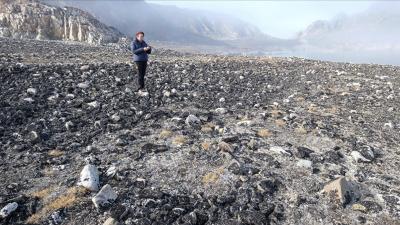
Students’ results on the PISA survey were cause for rejoicing —as in Québec— or worry — as in France, but one troubling factor united them: less than one student in 10 was able to distinguish a fact from an opinion.
The 2018 edition of this three-year survey, entitled “Program for International Student Assessment” (PISA), covered 600,000 15-year-old students in 79 countries. It was released on Tuesday by the Organizational for Economic Cooperation and Development (OECD).
Suddenly this survey’s data can be interpreted from a novel perspective, beyond what it reveals about skills (or weaknesses) in reading or mathematics. As PISA Coordinator and statistician Andreas Schleicher wrote, in our era of disinformation when terms like “post-truth” are circulating: “Reading is no longer mainly about extracting information; it is about constructing knowledge, thinking critically and making well-founded judgments.”
Abonnez-vous à notre infolettre!
Pour ne rien rater de l'actualité scientifique et tout savoir sur nos efforts pour lutter contre les fausses nouvelles et la désinformation!
The authors of the questionnaires were aware of this, because they added exercises for this purpose. The students not only had to show their ability to understand what the sentences said, but to distinguish a fact from an opinion, when they were reading about a subject unfamiliar to them.
The results on this point are worrying. Even in the champion of the 79 countries, Singapore, only one student out of four achieved a level where they are considered capable of distinguishing between fact and opinion. Canada was in the top rankings, but with only one student in seven able to make the distinction, along with Finland, four Chinese provinces and Hong Kong. In France, the figure was one out of ten.
Implicitly suggesting a connection in his analysis of the results, Andreas Schleicher inserts another observation: “students seems to read less for leisure and to read fewer books of fiction, magazines or newspapers because they want to… instead, they read more to fulfill practical needs”. Moreover, compared to nine years earlier, more students consider that reading is “a waste of time”. On the scale of the OECD, 49% in 2018 said they read only when they are obliged to, compared to 44% in 2009.
The education systems are starting to have to admit that their influence over what young people read is in decline, the report says. They have to catch up, at a time when there is no doubt, no matter what OECD country where they live, that all students need to “be able to read complex texts, distinguish between credible and untrustworthy sources of information (…) and question (…) the accepted knowledge and practices of our times”.
To learn more:
- The PISA survey
- The survey data related to France
- The survey data related to Canada
Link to PISA 2018, Insights and Interpretations, by Andreas Schleicher:
https://www.oecd.org/pisa/PISA%202018%20Insights%20and%20Interpretations%20FINAL%20PDF.pdf












